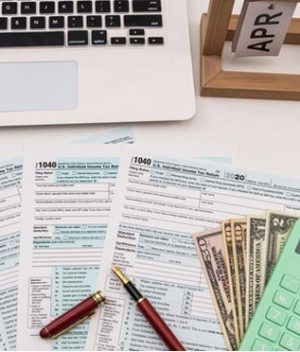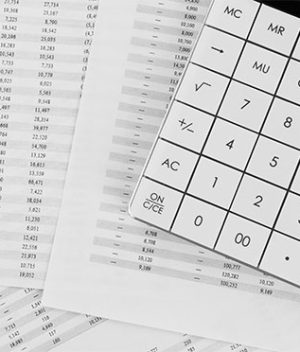By spthomas
The Real Reason Your Tax Bill Feels Too High (It’s Not What You Think)
Your tax bill shows up. You open it. That familiar sinking feeling creeps in again. The numbers stare back louder than words. Even if you were expecting it, it still feels like too much.
Many think the issue lies with brackets, deductions, or the system being broken beyond repair. But the reason your tax bill feels this steep has less to do with math and more to do with how you experience money in real life. It’s not about rates or forms. It’s about what you see—and what you don’t.
Where the Frustration Starts
Every month, you watch your paycheck shrink before it hits your account. Federal tax. State tax. Medicare. Social Security. Maybe a few other line items. It all adds up. But there’s something more powerful than the numbers: the feeling that you’re losing control.
You work hard. You show up, do what’s expected, and probably more. Yet when the tax bill arrives, it doesn’t feel like it reflects any of that effort. It feels like a cost that keeps climbing with no clear return.
The Invisible Exchange
This is where the story shifts. When you pay taxes, you’re funding a system that’s designed to support a lot of things. Roads. Schools. Fire departments. Military. Healthcare programs. Social services. And more. But here’s the issue: you rarely get to see those things as a return on your individual investment.
There’s no receipt that says, “Your taxes helped fix this bridge today.”
No breakdown that shows, “Your neighborhood’s streetlights stayed on this year because of you.”
No thank-you note from the fire department saying, “You helped keep the truck running.”
So, instead, what you feel is subtraction. And that’s what makes your tax bill feel too high. Not because it always is—but because the value feels invisible.
The Value Gap
This gap between what you pay and what you see is what builds frustration.
Let’s break it down:
- You pay monthly, but services feel distant.
- You support many people, but the benefit to you feels vague.
- You contribute a lot, but there’s no feedback loop.
This creates what’s known as a “value gap.” You’re spending real money, but the return doesn’t feel personal. And in a world where personal impact matters more than ever, that leaves a bruise.
Why That Feeling Matters
When something feels expensive, it’s often because it doesn’t feel worth it. Think about it. You’ll pay a higher price for something if the value is immediate and obvious. Whether it’s a meal, a trip, or a new gadget—when the benefit is clear, the cost feels more acceptable.
But taxes? They’re indirect. They’re abstract. And they’re shared. That makes it hard for people to feel good about paying them, even if those dollars are doing important work behind the scenes.
It’s Not Just About the Numbers
Here’s where many conversations about taxes miss the mark. People try to solve problems with logic. They explain rates. They compare tax codes across countries. They show charts. But this isn’t just a numbers game. It’s a human experience.
You feel like you’re giving up part of your income, and you’re not always sure why. You look around and still see potholes, overcrowded schools, or delayed emergency response times. That disconnect hurts. And when the value feels hidden, even a small tax bill can feel like a large burden.
What Makes This Feel Even Heavier
The emotional weight of taxes grows when:
- Wages stay the same, but expenses climb
- Healthcare, housing, and food cost more each year
- Raises don’t keep up with inflation
- You see wasteful spending in the news
- You don’t feel safe, supported, or heard by your local government
All of that makes your tax bill feel like a reminder of what’s not working instead of what is.
Reframing What You’re Really Paying For
Now, here’s the shift that helps you feel better—not by ignoring the cost, but by understanding it differently. You’re not just paying into a system. You’re helping hold it up. That’s not just about charity—it’s about shared strength.
- When your neighbor’s child goes to a public school, your taxes help shape their future.
- When someone gets emergency care and walks out alive, your taxes were part of that rescue.
- When the road you drive on doesn’t collapse, your taxes keep it maintained.
No one gets a billboard with their name on it. But the impact is still real. You help hold the whole thing together.
What You Can Do About It
Even if you can’t change the entire system, you’re not powerless. Here are a few things that can help shift how you feel:
- Know where your money goes. Many local governments publish breakdowns of spending. Seeing that detail makes your contribution feel more tangible.
- Vote in local elections. Local budgets matter more to your daily life than national debates. When you help choose the people in charge, the system starts to feel closer to you.
- Get involved in your community. Show up to town meetings. Voice concerns. These are small ways to shape how your taxes are spent—and how they benefit your area.
- Talk to a tax professional early in the year, not just during filing season. They can help you make decisions that reduce your burden and increase your confidence.
Feeling informed is one of the strongest ways to feel in control.
Your Effort Deserves Recognition
You work. You pay. You care. And while there may not be a thank-you letter waiting in your mailbox, your contribution matters more than you know. You’re not just part of the economy. You’re part of something larger, something built on connection—even if it doesn’t always look that way.
Understanding why your tax bill feels too high is the first step in changing your relationship with it. Because sometimes, what you need most isn’t a refund. It’s a reminder that what you give has value—even when it’s hard to see. Let this be that reminder.




